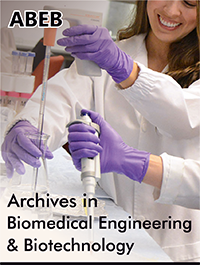 Research Article
Research Article
Pomegranate (Punica Granatum L) and Wound Healing: A Review of Experimental Studies
Fabiano Batista da Silva1, Giuliana Fulco Goncalves2, Amalia Cinthia Meneses do Rego3, Irami Araujo Filho4*
1Master’s Student of the Graduate Program in Biotechnology, Potiguar University (UnP)-Natal/RN-Brazil.
2Student of the Medicine Course at the Potiguar University, Scientific Initiation Scholarship of Liga Contra o Cancer-Natal/RN-Brazil.
3Institute of Teaching, Research, and Innovation, Liga Contra o Cancer-Natal-Brazil Full Professor of the Graduate Program in Biotechnology, Potiguar University (UnP)-Natal/RN - Brazil.
4Institute of Teaching, Research, and Innovation, Liga Contra o Cancer-Natal-Brazil, Graduate Program in Biotechnology Potiguar University (UnP)- Natal/ RN - Brazil. Department of Surgery, Potiguar University. Ph.D. in Health Science/ Natal-RN, Brazil.
Irami Araujo-Filho, Postgraduate Program in Biotechnology at Potiguar University/ UnP, Department of Surgery, Federal University of Rio Grande do Norte, Department of Surgery, Potiguar University in Health Science/ Natal-RN, Brazil.
Received Date: June 22, 2023; Published Date: September 11, 2023
Abstract
The review discusses the potential of Punica granatum L., known as Pomegranate, and its extracts in promoting wound healing. This review summarizes current knowledge about the use of Punica granatum L in healing cutaneous wounds in experimental models, mechanisms of action, challenges, and opportunities for future research. Pomegranate extract has been observed to benefit wound healing due to its antioxidant, antiinflammatory, and antimicrobial properties. The fruit’s polyphenols, flavonoids, and tannins contribute to wound healing, reduce oxidative stress, inflammation, and infection, as well as stimulate fibroblast proliferation and collagen synthesis, which are crucial for tissue repair. Animal studies have shown that pomegranate extract accelerated wound closure, re-epithelialization, collagen deposition, and reduced wound size, inflammation, and bacterial load in various wound models. In addition, pomegranate extract in the form of nanoparticles, associated or not with silver, was analyzed for improvement in wound healing, antimicrobial action, and reduction of inflammation in animal models. Pomegranate peel and seed oil enhance collagen synthesis, growth factor expression, and reduce oxidative stress. Pomegranate extract shows promise as a natural and safe alternative for wound healing. The mechanisms underlying Pomegranate’s beneficial effects on wound healing were discussed, potential clinical applications of Pomegranate in treating human skin wounds, limitations, and challenges.
Keywords: Pomegranate; Wound healing; Experimental models; Experimental studies; Experimental animal models; Surgery
-
Fabiano Batista da Silva, Giuliana Fulco Goncalves, Amalia Cinthia Meneses do Rego, Irami Araujo Filho*. Pomegranate (Punica Granatum L) and Wound Healing: A Review of Experimental Studies. Arch Biomed Eng & Biotechnol. 7(4): 2023. ABEB. MS.ID.000668.
-

This work is licensed under a Creative Commons Attribution-NonCommercial 4.0 International License.






